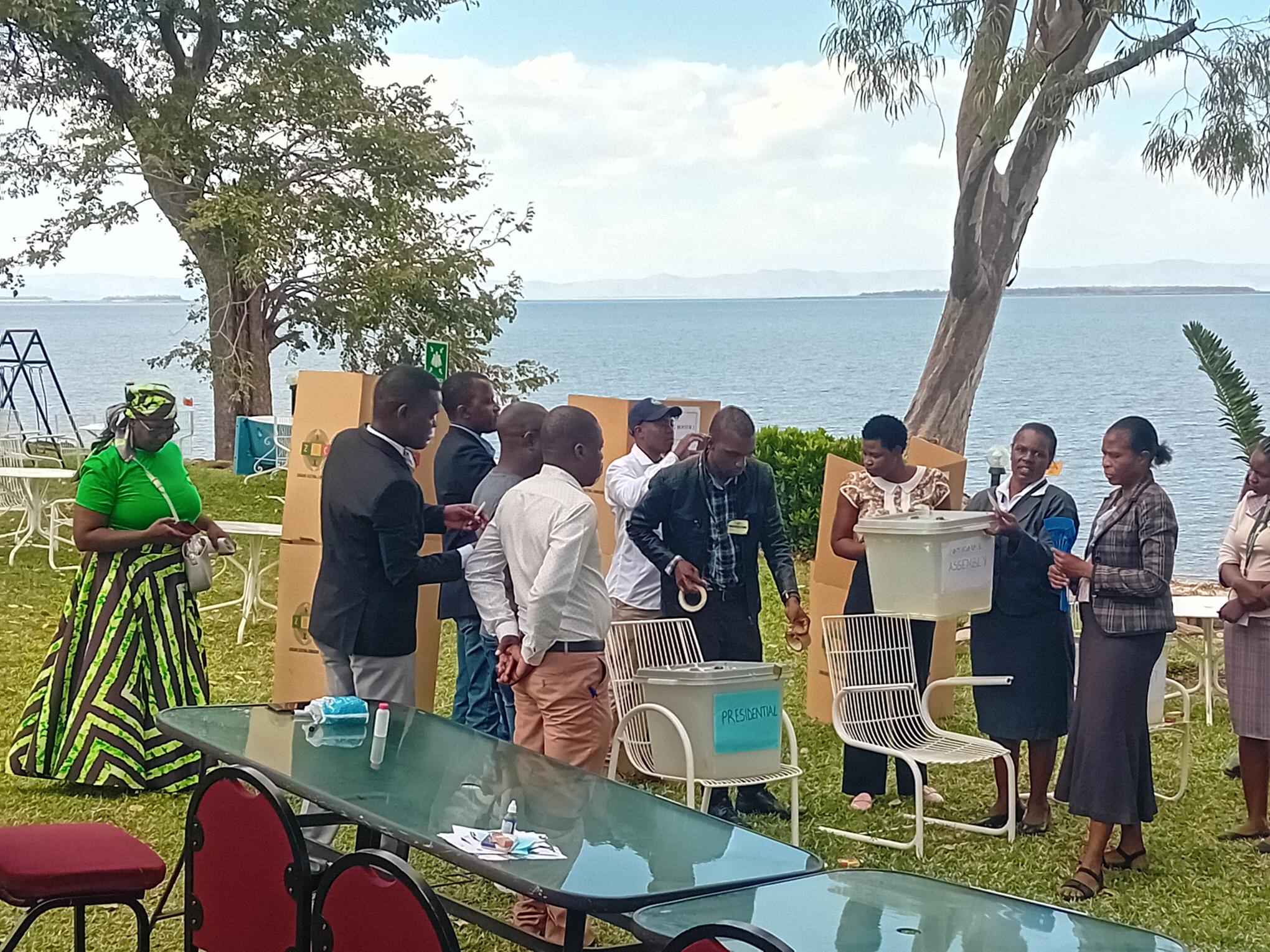|
Getting your Trinity Audio player ready…
|
Writes Nhau Mangirazi
Kariba – The Zimbabwe Republic Police (ZRP) national spokesperson, Assistant Commissioner Paul Nyathi has challenged the media to help politicians to be tolerant during the campaign period ahead of forthcoming elections.
Nyathi made the remarks during the media election reporting training in Kariba where he said there is a need to respect each other regardless of political affiliation.
‘‘Some politicians are dividing communities through hate speech that is uncalled for. As police, we challenge the media to take advantage of reminding politicians that there is life after elections. We must work closely for the development of our communities. There is no need for hate speech that will divide communities other than uniting them,’’ said Nyathi.
He challenged journalists to wear press jackets issued by the Zimbabwe Media Commission (ZMC) so that they are identified whenever there are political clashes.
Nyathi said so far the campaign period has been peaceful ahead of the 23 August harmonized elections.
ZMC vice chairperson, Jasper Maphosa, said the media provides a platform for debate among candidates by allowing candidates to communicate their messages to the electorate and reporting on campaign developments.
‘‘The role of the media should be to inform voters on how to exercise their rights and monitor the electoral process. The media as the fourth estate is expected to provide a communication platform between the contestants and the voters. By providing such a platform for public debate, scrutiny and informing the public of the policies of candidates and political parties, the media enables voters to judge for themselves and make informed decisions when they cast their votes or ballots,’’ said Maphosa.
He added that the forthcoming elections are a test of independent and responsible media that promotes a peaceful electoral process.
‘‘Regarding the upcoming elections, ZMC is particularly interested in seeing professional and responsible media which promotes the free flow of information and content that enables citizens to make informed decisions. Elections should not divide us, different choices do not diminish our collectivity, we are still Zimbabweans, one family, driven by shared hopes, dreams, and aspirations, and we all share a common history. The media as the fourth estate is expected to provide a communication platform between the contestants and the voters. By providing such a platform for public debate, scrutiny and informing the public of the policies of candidates and political parties, the media enables voters to judge for themselves and make informed decisions when they cast their votes or ballots,’’ added Maphosa.
He challenged all media practitioners to be aware of the provisions of legal instruments as it provides for the ‘dos’ and ‘don’ts’ regarding the conduct of media practitioners covering elections.
‘‘The spirit of the legal instrument is to provide for a media that assists in the creation of the conducive environment for the holding of peaceful and credible elections.
‘‘At the same time, the instrument tries to create a level media playing field for all those who will be contesting in the plebiscite. In line with these legal requirements, ZMC has already begun processes to capacitate the media players to play their role,’’ he added.
The training workshop is one of a series of such activities put in place by the commission to achieve that end.
The commission has already launched an Elections Reporting and Peace Journalism Manual whose major objective is to capacitate media practitioners with the necessary knowledge and skills on how to report the story of the election.
The development of the manual came after the realization of knowledge gaps by media practitioners in covering the election story, particularly issues dealing with the electoral process and the attendant legal provisions.
Among other issues, the manual deals with peace reporting, violence, and conflict resolution, the safety of journalists, elections and women, elections, and youths, and the conduct of the media when covering political activities.
‘‘At the same time, the instrument tries to create a level media playing field for all those who will be contesting in the plebiscite. In line with these legal requirements, ZMC has already begun processes to capacitate the media players to play their role,’’ said Maphosa.
Zimbabwe Election Commission director in charge of research and development, Antony Chikutsa, also called on journalists to shun ‘‘Misinformation and disinformation that promotes toxic narrative on the electoral processes. They breed doubt and confusion and increase polarization which affects the credibility of any election. They can be a tool to spread falsehoods and violence. Please desist from spreading falsehoods on the electoral process,’’ he added.
ZMC intends to train at least 1000 journalists countrywide on election reporting.
